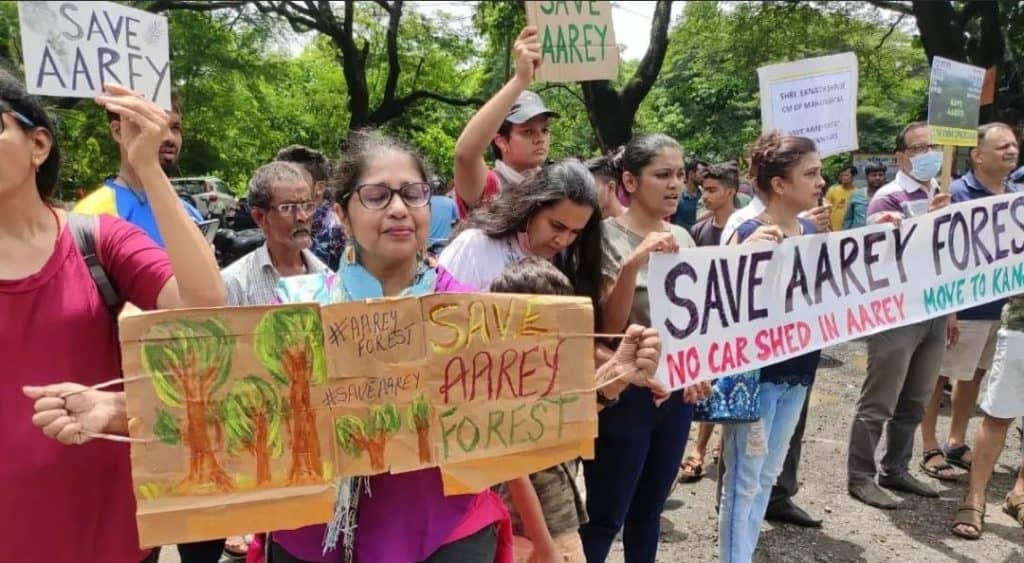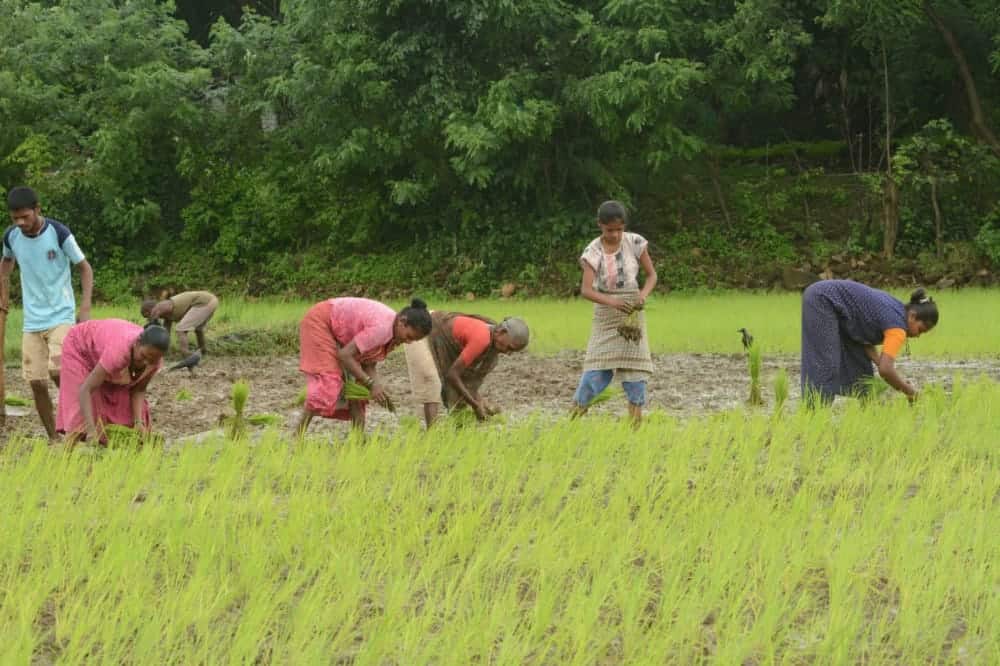A people’s protest to ‘Save Aarey’ was held on July 3rd at Picnic Point in Aarey Colony, following the Maharashtra government’s decision to overturn the legal protection Aarey had earlier received. The newly-appointed Deputy Chief Minister Devendra Fadnavis took the decision to relocate the metro car shed project back to the forest in his first meeting since taking the oath.
The move to reverse the decision of the previous Maha Vikas Aghadi coalition government created a stir amongst environmentalists and citizen activists from all over Mumbai and protests were organised almost overnight after the decision was made. However, this project isn’t Aarey’s only concern.
Since Aarey was established in 1949, many development projects were introduced without citizens’ participation and approval, which the Aarey Administration, which falls under the Maharashtra Government, approved. But our community has always opposed these “development projects”.
Although not the first project to receive backlash, the newest project that has come to the media is the Metro car shed that is to be built in the Aarey forest. But other projects, like an international zoo, marked directly on our land, are also underway.

Where do we go from here?
The Metro car shed is only the beginning. It poses a threat to flora and fauna and the entire ecosystem of Aarey, of which we are a part. This has induced uncertainties for us Adivasi folk, as these decisions directly threaten our livelihoods. If our land is taken away, we have no other way to earn a living. Getting jobs in the city is difficult for us.
If our lands are occupied, how are we supposed to earn for ourselves and our families? Where should we find a place for our coming generations?
We cannot even buy a plot of land outside the city, as nobody in the community has the economic means to do that. After selling vegetables all day, they can only afford to buy food for the next day. We are a community of people who live in complete synergy with the forest. We thrive because of the forest and the forest thrives because of us. People talk of living sustainably in the city and reducing waste when they’re uprooting the lives of people like us who generate close to zero waste and do not burden the forest one bit. We put everything back into our farms and forests.
Two of my brothers work in corporate jobs and my father is a full-time farmer on our 3.5-acre land where we grow rice and a few other vegetables in the Aarey colony. My sister-in-law sells our products in the market. The rice we produce usually lasts us a whole year, so our expenditure on groceries is limited. My work revolves around doing research in the SGNP, Thane-Yeoor and Aarey zones about how much water supply, washroom facilities, and government benefits the resident Adivasis are getting, compared to how much they are entitled to. The name of the project is Greed.
Aarey Colony is not just a land, it is our home
Aarey is home to various tribes like Kokana, Malhar Koli, Dhodia, Dubla, Katkari, Thakra etc. We belong to the Warli tribe and have lived in the now-called Aarey Colony for generations. Most Adivasis in the area rely on farming poultry, dairy, and vegetables. Some are woodcutters and others have their businesses.

The 812 acres of land that fall under the forest department and the international zoo project both overlap with the forest zone. For the metro car shed, markings have been made at various places and many houses, farms and stables fall on or near the marking. This is forcing vulnerability on several families. There’s still no confirmation on whose houses will have to be taken down.
At the last meeting with the tribals, the Aarey Administration showed us a map of the project, and from the looks of it, all Tabelas and Padas (settlements) have been excluded from the project, but all of the farm and other unused land will be taken.
Read more: “Aarey is the most abused and exploited land mass in Mumbai”
People who come to cities have their villages to go back to, and a place to reside in case of an emergency. But Adivasis in the Aarey forest have nowhere to go. We don’t have villages and houses to go back to. This is our village, and the only reality we know.
Even if they implement Slum Rehabilitation Authority (SRA) schemes for us, it wouldn’t make sense and won’t work in our favour. We will have our own houses but what about our cows, goats, and hens? Will the SRA provide them accommodation too? SRA claims to provide rehabilitation but at the cost of our culture, lifestyles and livelihoods. Aarey is more than a home to us, it is a whole ecosystem inside a city which is well equipped to provide for itself.
I’m only glad that the new developments provide a window to a larger conversation about the struggles of the Adivasi community and how these development projects affect us directly. We need to conserve the forest and also the people who live there, as they’re part of the identity of the forest.
[Writing assistance provided by Radha Puranik]